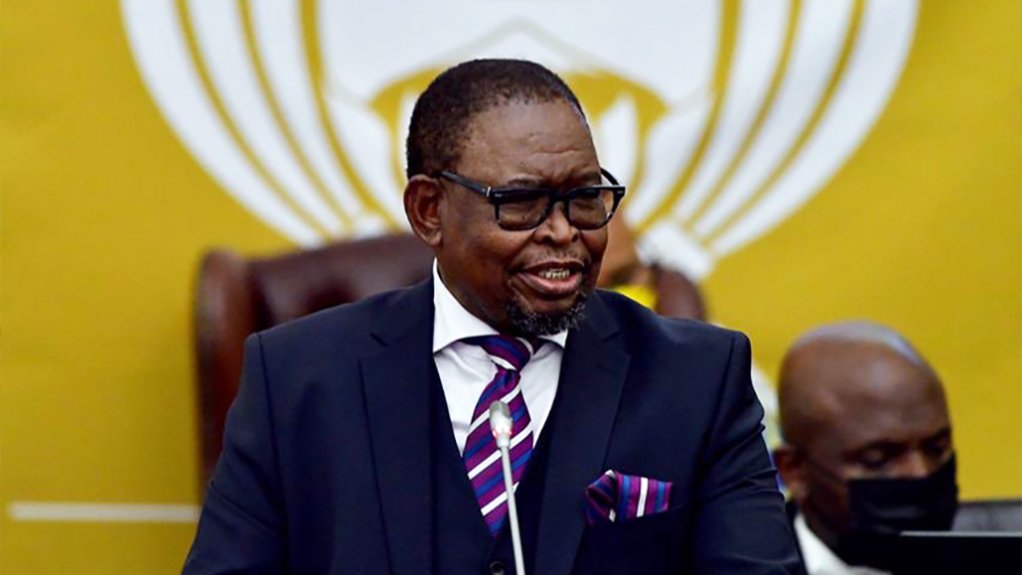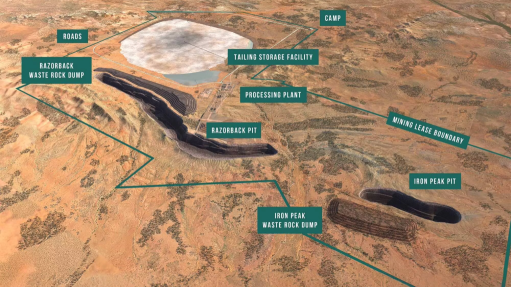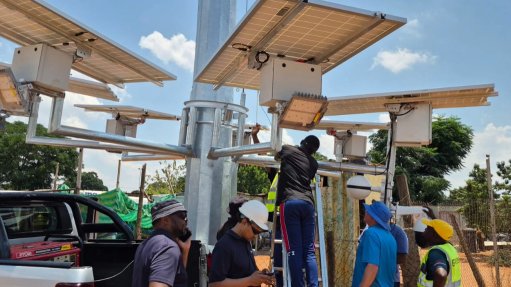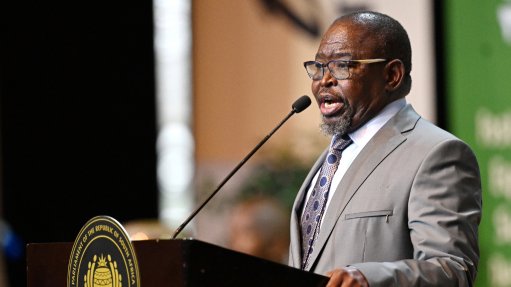The Budget trade-offs that will now come into focus ahead of March 12
Note: Some of the information in this article has been written on the basis of documents provided to the media during the 2025 Budget lock-up prior to the cancellation of the Budget Speech on February 19. The National Treasury has lifted the embargo imposed on the information, but a new Budget is now due to be tabled on March 12.
In an unprecedented development, the speaker of Parliament Thoko Didiza was forced to postpone the 2025 Budget address by Finance Minister Enoch Godongwana on Wednesday.
This, after Cabinet failed to agree on a two percentage point value-added tax (VAT) hike included in the Budget.
The Budget will now be held on March 12.
In a shock move that went against the wishes of both the parties participating in the Government of National Unity (GNU) and powerful civil society groupings, Godongwana proposed hiking VAT to 17% from April 1.
Had the Budget been tabled, it would have been accompanied by a rates bill confirming the VAT hike, and which would have been implemented on April 1 regardless of whether parties decided to vote it down in the weeks that followed.
The hike was higher than the one percentage point increase signalled in leaks ahead of the Budget, which provoked vocal opposition days before Godongwana’s speech, including from key GNU member the Democratic Alliance, as well as African National Congress allies such as the Congress of South African Trade Unions and the South African Communist Party.
Godongwana decried the leak, which he attributed to a Cabinet member.
He also stressed that the VAT hike had not been dropped on Cabinet out of the blue, indicating that members had been made aware of the National Treasury’s directional thinking regarding the VAT increase two weeks prior to the special Cabinet meeting on February 19.
However, the size of the increase had not been disclosed.
The VAT hike, should it be agreed, would raise R58-billion in additional revenue in 2025/26 and was proposed against a backdrop of a R19.3-billion downward revision to the 2024/25 tax revenue estimate when compared with the 2024 Budget and a wider government deficit of 5%.
NOW BEFORE CABINET
Godongwana said he was in favour of the high level of interest being shown in the trade-offs by Cabinet, which would now need to decide collectively how best to fund the GNU’s priorities.
The options, he said, included expenditure cuts, tax hikes or increased borrowing; the latter would represent a break from the National Treasury’s current fiscal strategy, which is aimed at containing debt and reducing the fiscal deficit.
Godongwana said Cabinet had decided to postpone the release of the 2025 Budget to allow for further discussions, but said these discussions would not be broadened to other stakeholders, nor would it be feasible to conduct a wholesale expenditure review before March 12.
He also said there was no deadlock-breaking mechanism when it came to approving a Budget, which was a Cabinet document.
President Cyril Ramaphosa subsequently issued a statement assuring South Africans that Cabinet’s continuing deliberations on the Budget would “deliver outcomes that will protect vulnerable citizens and lay a platform for economic growth”.
He confirmed that the postponement was the result of disagreement, but added that there was also “collegial and mature consensus within Cabinet that Budget proposals be worked through comprehensively and productively to secure the wellbeing of the economy and individual citizens”.
WHY VAT WAS CHOSEN
Ahead of the postponement, Godongwana had moved to justify the VAT hike on the basis that it was preferable to the other options of increasing borrowings, cutting expenditure, or raising other taxes.
The Budget Review document, which was provided to journalists under embargo, added that VAT was selected as raising personal income tax rates was likely to be inefficient because individuals would find ways to reduce their liabilities.
It added that hiking the corporate tax rate could impede competitiveness and generate less revenue than VAT.
“VAT is an efficient source of revenue. It is broad-based, and its design is simple with minimal exceptions.
“Moreover, South Africa’s VAT rate is still relatively low compared with peer countries,” the National Treasury stated, while publishing a table showing South Africa’s VAT rate to be below the OECD average of 19%, and lower than rates in countries such as in Morocco, Tunisia, Brazil, and India.
It also argued that, while a rate increase affected all households, most VAT was paid by higher-income households, which consume more.
“Over 75% of VAT revenue is derived from households in the top four expenditure deciles, which roughly corresponds to households that spend R118 000 or more per year.”
EXPANDED ZERO-RATED LIST
In addition, the VAT increase was due to be announced alongside additional zero ratings for essential food items that was held up as a way of mitigating the impact, particularly for poorer consumers. This, together with no increase to the general fuel levy, adjustments to tax brackets for lower-income earners and above inflation social-grant increases.
A total of 21 essential food items are currently VAT-exempt and the proposal was to extend the list of zero-rated items from April 1 to include variety meats from sheep, poultry, goats, swine and bovine animals; specific cuts such as heads, feet, bones and tongues; dairy liquid blend; and tinned and bottled vegetables. The full list will be subjected to public consultations.
In the speech that was never made, Godongwana was set to explain that the revenue would enable government to expand early childhood development opportunities for children, retain teachers, doctors, and essential frontline workers, revitalise commuter rail and provide above-inflation increases to social grants for the most vulnerable.
He said it had come down to a trade-off between raising taxes and borrowing more; with the latter option having been eschewed on the basis that the debt-to-GDP ratio had reached the limits of sustainability.
Under the proposal, government would achieve its goal of stabilising debt next year through a strengthening primary surplus. The debt-to-GDP ratio would stabilise at 76.1% in 2025/26 and fall to 74.8% by 2027/28.
The consolidated Budget deficit for 2024/25 would rise to 5%, against the 4.5% forecast in the 2024 Budget, but would then decline to 4.4% next year, followed by 3.8% in 2026/27 and to 3.4% in 2027/28.
GROWTH OVERSHADOWED
The Budget Review also included a focus on growth, but it did not align with the 3% growth target set by Ramaphosa in the recent State of the Nation Address.
While forecasting lower-than-expected growth of only 0.8% for 2024, the Budget Review expects the economy to expand by only 1.9% in 2025, 1.7% in 2026 and 1.9% in 2027.
It was not immediately clear what impact the two percentage point increase in the VAT rate would have on the growth outlook, but South African Reserve Bank governor Lesetja Kganyago said it would translate to an immediate unexpected “shock” for prices.
He said the bank would need to assess whether there would be any second-round effects from that shock before deciding on whether it needed to respond.
Godongwana, meanwhile, stressed the Budget’s emphasis on both infrastructure spending and ongoing reform under Operation Vulindlela to support higher levels of growth.
“These reforms had significant benefits for the investment environment, as reflected in the RMB/BER Business Confidence Index, which in the fourth quarter of 2024 reached its highest level since mid-2021.
“Yet far more is needed to raise productivity and inclusive growth in a manner that does not lead to higher inflation,” the Budget Review stated.
It was anticipated that Cabinet would approve the second wave of reforms under Operation Vulindlela in the coming months.
While geopolitical tensions and the threat of higher tariffs were highlighted as risks to the outlook, the Budget made no immediate provision for the prospect of a cut in aid support from the US, with the President’s Emergency Plan for Aids Relief currently the subject of a 90-day review.
Article Enquiry
Email Article
Save Article
Feedback
To advertise email advertising@creamermedia.co.za or click here
Press Office
Announcements
What's On
Subscribe to improve your user experience...
Option 1 (equivalent of R125 a month):
Receive a weekly copy of Creamer Media's Engineering News & Mining Weekly magazine
(print copy for those in South Africa and e-magazine for those outside of South Africa)
Receive daily email newsletters
Access to full search results
Access archive of magazine back copies
Access to Projects in Progress
Access to ONE Research Report of your choice in PDF format
Option 2 (equivalent of R375 a month):
All benefits from Option 1
PLUS
Access to Creamer Media's Research Channel Africa for ALL Research Reports, in PDF format, on various industrial and mining sectors
including Electricity; Water; Energy Transition; Hydrogen; Roads, Rail and Ports; Coal; Gold; Platinum; Battery Metals; etc.
Already a subscriber?
Forgotten your password?
Receive weekly copy of Creamer Media's Engineering News & Mining Weekly magazine (print copy for those in South Africa and e-magazine for those outside of South Africa)
➕
Recieve daily email newsletters
➕
Access to full search results
➕
Access archive of magazine back copies
➕
Access to Projects in Progress
➕
Access to ONE Research Report of your choice in PDF format
RESEARCH CHANNEL AFRICA
R4500 (equivalent of R375 a month)
SUBSCRIBEAll benefits from Option 1
➕
Access to Creamer Media's Research Channel Africa for ALL Research Reports on various industrial and mining sectors, in PDF format, including on:
Electricity
➕
Water
➕
Energy Transition
➕
Hydrogen
➕
Roads, Rail and Ports
➕
Coal
➕
Gold
➕
Platinum
➕
Battery Metals
➕
etc.
Receive all benefits from Option 1 or Option 2 delivered to numerous people at your company
➕
Multiple User names and Passwords for simultaneous log-ins
➕
Intranet integration access to all in your organisation




















